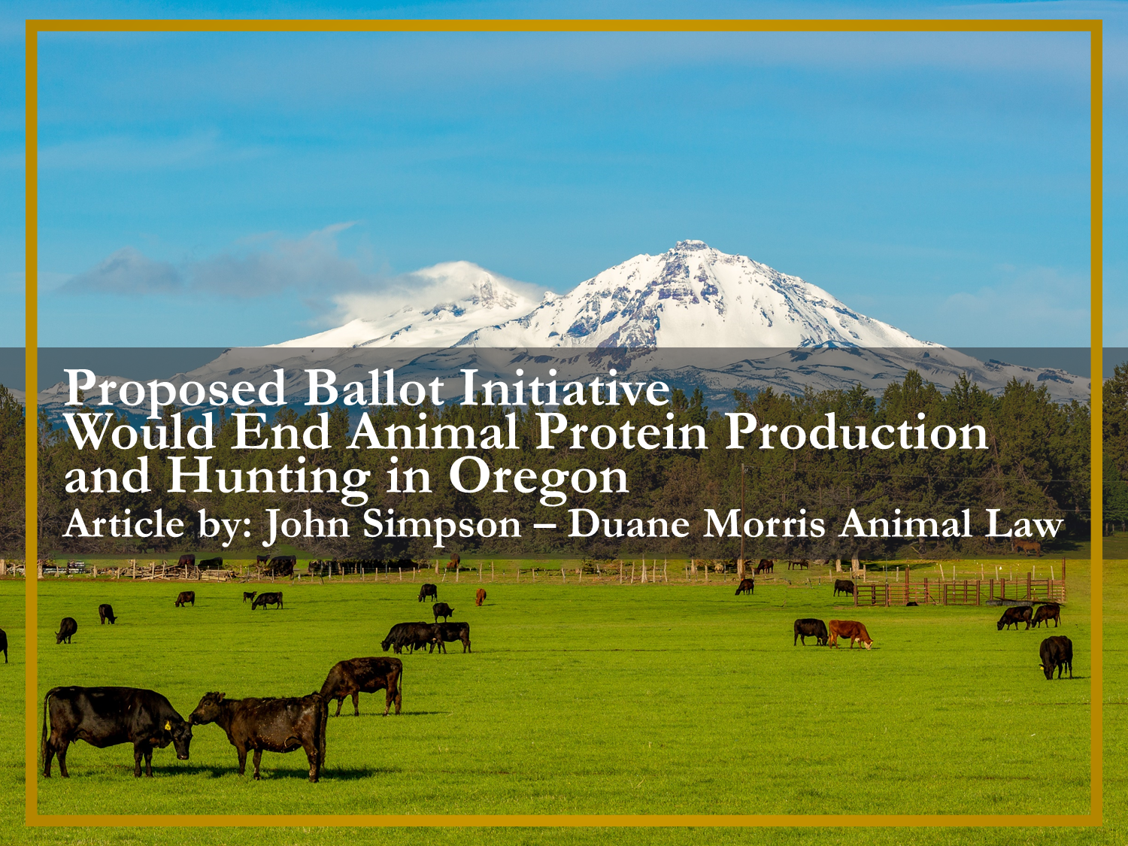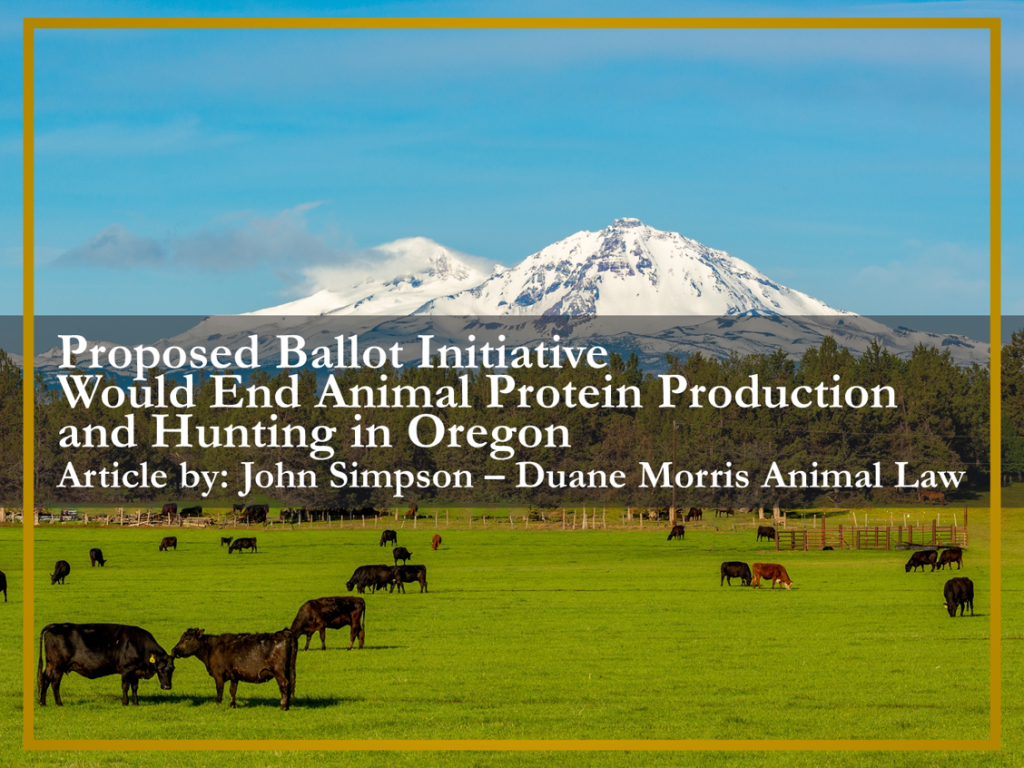
Article by John Simpson – Duane Morris Animal Law
On June 21, 2021, the Oregon secretary of state received Initiative Petition 2022-13 (IP 13), a ballot initiative for the November 8, 2022 general election which had been captioned by the state attorney general as follows: “Criminalizes injuring/killing animals, including killing for food, hunting, fishing; criminalizes most breeding practices. Exceptions.” IP 13, which emerged last November, would have far-reaching effects in Oregon if adopted by voters next year.
IP 13 proposes significant changes in the state’s criminal laws governing animal cruelty which heretofore have contained exceptions for animal husbandry, hunting and the like.
Numerous provisions in existing law making exceptions for activities like livestock production and hunting would be abolished. By eliminating these exceptions, IP 13 would effectively make any injury to an animal arising from the following activities a crime:
- Treatment of livestock transported by owner or common carrier.
- Rodeos or similar exhibitions.
- Commercially grown poultry.
- Use of good animal husbandry practices.
- Slaughtering of livestock in compliance with state law.
- Fishing, hunting and trapping otherwise lawful under state law.
- Wildlife management practices under color of law.
- Lawful scientific or agricultural research or teaching that involves the use of animals.
- Reasonable measures to control of vermin or pests.
- Reasonable handling and training techniques.
- The only exceptions would be the existing exception for veterinary practices and a new exception for self-defense.
As can be seen, eliminating the foregoing exceptions would make it impossible to harvest animals for food, whether commercially or as a result of sport hunting. Any intentional killing of an animal, unless in self-defense or for a veterinary health reason, would be illegal, which would in turn, make livestock production for food and hunting illegal.
IP 13 also would amend Oregon law so that any contact to the genitals of an animal would be a crime if it is for the purpose of breeding domestic, livestock or equine animals. This would make artificial insemination illegal.
A series of questions and answers on the website of the organization backing IP 13 further demonstrates the radical nature of the measure:
- As to the impact of IP 13 on feeding people in Oregon, the backers assure the reader that “Oregon is a top-ranking producer of many field and seed crops, fruits, nuts, and vegetables.” In other words, there will be no problem as long as you don’t want to eat any type of meat.
- As to whether a rancher can still raise cattle, the answer is “yes.” But if you want to eat them, as opposed to just having them as pets, the cattle “would have to be processed after they died of natural causes, such as old age.” That would add new meaning to the concept of “aged” beef.
- As to hunting, fishing and trapping, you can still “seek” and “pursue” the animal; you just can’t kill it. The backers assure the reader that “there are countless activities we can engage in for recreation that do not involve taking the life of any animal; it is possible that everyone can get their needs met.”
- Selling meat, leather or fur will be legal as long as you wait until the “animal dies of natural causes, such as old age.”
As we recently reported, a similar ballot initiative in Colorado was rejected by that state’s supreme court on the ground that it violated the state constitutional requirement that no ballot initiative be proposed that contains more than one subject.
As to the Oregon proposal, any registered voter who commented on the draft ballot title and who is dissatisfied with the ballot title issued by the state attorney general has until July 6, 2021 to file an appeal with the Oregon Supreme Court.
Link to original article HERE



